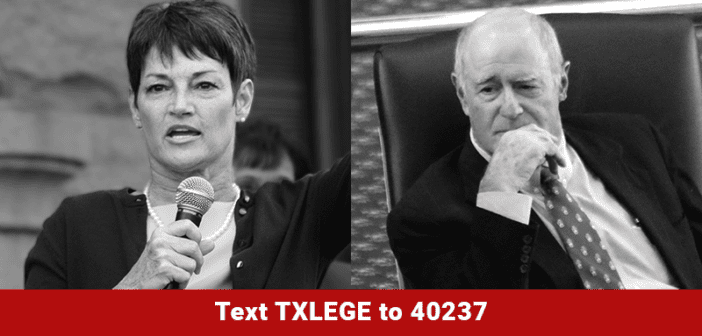The 87th legislative session can be properly described as a great victory for preborn children but a devastating loss for vulnerable patients. Vulnerable patients once again sadly fell by the wayside as the Texas Legislature failed to address the lethal 10-Day Rule of the Texas Advance Directives Act.
Tragically, the Respecting Texas Patients’ Right to Life Act (SB 917) that would have implemented these needed reforms did not reach the governor’s desk.
Equally disheartening is the fact that the bill died after two Republican Senators, Senator Kel Seliger (R-Amarillo) and Senator Donna Campbell (R-New Braunfels), publicly opposed this life-saving measure in committee.
SB 917 by Senator Bryan Hughes, one of the Pro-Life Champions of the 87th Legislature, was a crucial reform of the Texas Advance Directives Act. Current Texas law authorizes physicians to deny and withdraw life-sustaining medical treatment from a patient against his or her expressed medical decision, with only the approval of a hospital ethics committee. If the committee approves, the patient is given a short 10-day notice after which the physician and hospital may remove life-sustaining treatment with complete criminal, civil, and administrative immunity, often hastening the patient’s death.
This desperately needed bill would have ensured that a patient’s life-sustaining treatment would continue until he or she could be transferred to another facility or to a physician who would honor the patient’s medical directive, thereby protecting hospitalized patients.
SB 917 narrowly passed out of the Senate Health & Human Services Committee with opposition from Republicans Campbell and Seliger. Ironically, one pro-abortion Democrat on the committee recognized the need for reform to protect the lives of patients victimized by the current status of the law and voted in favor of the bill, allowing it to move on to the next step in the legislative process – a vote on the Senate floor. But before the bill could be heard on the Senate floor, Texas Right to Life was told that the Republican Caucus (all Republican members of the Senate) discussed their thoughts on the proposed legislation in a private meeting. Neither Texas Right to Life nor any Pro-Life activists were privy to attend this closed-door meeting that sealed the Pro-Life Priority’s fate. Whatever was discussed in that meeting, at the end SB 917 was dead.
Before SB 917 was debated in this secretive party meeting, Texas Right to Life visited every Republican Senate office to discuss the full impacts of this reform and how crucial additional protections are for our vulnerable patients.
When speaking with these elected officials, we shared the testimonies of scores of Texas patients victimized by the law and whom Texas Right to Life’s legal team has fought to protect from the 10-Day Rule, many of whom came and testified in the Capitol in favor of SB 917. These individuals desperately need this unjust law repealed.
When meeting with several of the senators we received pushback, many claiming that doctors’ and hospitals’ rights may need to come before the patient’s Right to Life. Senator Campbell, Senator Seliger, and their staff members maintained this position in their conversations with Texas Right to Life as well as other Pro-Life activists who heavily advocated for the bill. Their opposition to this Pro-Life Priority was only enabled by backing from massive Texas medical lobbying groups and organizations who should take a Pro-Life position on this life-threatening law but choose not to. Unfortunately, these groups have a reputation in the Capitol for opposing strong legislation that empowers vulnerable patients and their families.
Campbell and Seliger’s opposition gave the rest of the Republican senators an excuse to back down from supporting repeal of the 10-day Rule. Although the bill had been placed on the Intent Calendar (the Senate’s calendar for bills intended to be voted on by the full Senate in the next few days), SB 917 was ultimately never heard on the Senate floor. While Senator Campbell, an emergency room physician, is an outspoken voice for the preborn and has filed Pro-Life legislation before, her opposition to this critical medical ethics bill is a significant disappointment for Texas Right to Life and the Pro-Life movement.
This is an example of why we urge Pro-Life Texans to carefully evaluate who they vote for. Texans must ensure that candidates who are Pro-Life in word are indeed Pro-Life when the crucial time comes to defend both preborn children and vulnerable patients.
Visit Texas Right to Life’s Pro-Life Scorecard to see for yourself how your elected officials performed this year.
Keep an eye out for our endorsements in your local races to be sure that, unlike disappointing elected officials, your candidate will rise to the challenge to defend Life.


